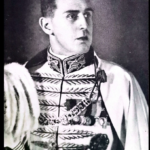MWANANDUNGU
- 5 Min Read
Mwanandungu (who flourished in the mid-19th century) is recalled in oral tradition as one of the leaders of the Lobala people when they migrated to the present location on the left bank of the Ubangi River, about 175 km (100 mi) north of modern Mbandaka.
The Lobala are one of the many river or fishing peoples of the region between the Zaire and Ubangi rivers, whose history is complex, and only partially known.
Like the Likoka-Ntanda who live immediately to the east of them, the Lobala claim to have come originally from the left bank of the Giri River in the region of Mobele. According to oral tradition, the Lobala emigrated in small family groups led by men such as Bongombe and Iteno, who brought the Nkungu (now Bolebo) group, or Itumba, who led the Mokame. Mwanandungu, together with his father and grandfather, is remembered as a leader of the Ikwangbala family of the Lobala.
Supposedly, in the original Lobala migration from Mobele, the Ikwangbala traveled with the Mantele, Bosoko, Bokeka, Nyonyo, and Ikembe families. Guided by their common leader Munkata, they stopped at Mufondu, Mabenzo, Bonyoyi, Kwese, and Nkombe before separating when they reached Bokombe.
One part of this larger migration then followed Mboloyamato (meaning “prow of a dug-out canoe”). When Mboloyamato died, at Bokembe, on the crest of the Ubangi-Giri watershed, his son Mwanandungu took charge of the group. As the people no longer traveled by river and stream, for a time they forgot how to use dug-out canoes.
Under Mwanandugu, they attacked the Bonzembo, the principal clan of Nseka, or Mokolo, who had preceded them in this migration. Pushed to the banks of the Ubangi, the Bonzembo then fought the Bondon-go, who, in turn, went further north, towards the present side of Dongo, located about 275 km (185 mi) north of what is now Mbandaka on the Ubangi River. Mwanandungu’s people stopped briefly at Bibete before finally settling at Ikwangbala near the Ubangi.
One day, while the people were living at Ikwangbala, Mwanandungu’s slave, who was out hunting with his dogs, discovered the Ubangi River. Carrying a large fish, he returned with news of the river previously unknown to them. The desire to catch more such fish caused Mwanandungu and his men to abandon the old site of Ikwangbala and settle on the river bank. The new site was also called Ikwangbala, and this name became the name of the clan. The Ikwangbala, however, who did not yet know how to fish in this great river, had to come to terms with their earlier rivals the Bonzembo, in order to exchange their bananas for fish.
According to H. Vandevenne’s inquiry in 1928, the migrations of Ikwangbala, under the leadership of Mwanandungu, had taken place 50 to 60 years earlier. It seems, however, that they took place earlier still, and well before 1870, for when Bobangi traders began to visit the region around 1880-90, the members of the Ikwangbala clan were solidly entrenched, and had long been accustomed to life on the water.
Besides explaining when and why the Ikwangbala settled on the Ubangi River, oral traditions about Mwanandungu also describe the Ikwangbala family’s relation to nearby Lobala people. According to oral records, once Mwanandungu died, his sons and relatives dispersed, spreading out “as embers scatter.’
For example, Ikwango, having killed several men in his own village, and being unable to pay restitution to the injured families, was forced to leave Ikwangbala. Ikwango founded another village called Ikwangbala bongondo fa Ikwango (“Ikwangbala, created by Ikwango”). This village, which has since disappeared, was located near Kungba beyond Imese 220 km (140 mi) north of Mbandaka, on the Ubangi.
Itongo, another notable and the grandson of the original leader Munkata, settled among the Lobala Mpoko, where he founded the family called “Ikwang-bala created by Itongo.”
Ikwangbala people also appeared west of the Ubangi in what is now the People’s Republic of the Congo. When Mwanandungu was still alive, he gave one of his daughters to a man named Bondongo, who lived west of the river. This marriage was intended to bring peace between the two groups. Afterward, one of Mwanandungu’s grandsons from this union founded a village called Ikwangbala, and located in what is now the People’s Republic of the Congo.
Even after Mwanandungu had separated from other leaders such as Ingende and Ibito, who founded Bokweye, Nyambaka, who founded Nyonyo, and Mokoma, who founded Ikembe – the Ikwangbala clan retained some influence over these diverse Lobala groupings.
Although oral histories of Mwanandungu and his kin may reflect social arrangements rather than factual events, such stories reinforce the prominent position of Mwanandungu’s family in the Lobala area. Thus, when the Lobala chiefdom was created by the colonial government in 1928, the ruler was chosen from among the descendants of Mwanandungu. There was no opposition to this from the other groups.
MUMBANZA mwa BAWELE na
NYABAKOMBI ENSOBATO



